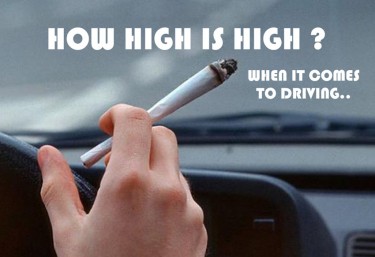Starting in January 2023, Massachusetts will become the first recreational cannabis state in the US to implement a program to educate teens about cannabis-impaired driving. The Massachusetts Department of Transportation said that cannabis impairment courses will be added to driver's education programs.
The Registry of Motor Vehicles, which claims to govern drivers' education in the state, announced Monday that it is adopting the AAA curriculum. The curriculum is dubbed "Shifting Gears: The Blunt Truth About Marijuana and Driving," is a collaborative project between the Registry of Motor Vehicles with members of the Cannabis Control Commission.
What's in the Curriculum?
The American Automobile Association developed the new program, "Shifting Gears: The Blunt Truth about Marijuana and Driving." According to officials, the curriculum will be taught to about 50,000 new drivers yearly in about 700 driving schools across the state.
To get a full, unrestricted license in Massachusetts, all first-time drivers under 18 must undertake 30 hours of classroom training.
According to Massachusetts Department of Transportation (MassDOT) representatives, the present driver education program addressing impaired driving will be revised. The new program will include research-based information on cannabis, describing how tetrahydrocannabinol (THC), the active ingredient in marijuana, affects cognition, response time, vision, and perception of time and distance.
According to MassDOT, a presentation to market the new program will be held at the Worcester Register of Motor Vehicles on Friday by the RMV, Massachusetts Cannabis Control Commission, and AAA.
Why is the Curriculum Important?
According to a 2022 survey, more than 40% of US drivers who consume marijuana and alcohol admitted to driving under the influence of both or one of the substances.
Researchers analyzed data from 34,514 drivers aged 16 and above who acknowledged past-year alcohol and cannabis use. They participated in the National Drug Use and Health Survey between 2016 and 2019.
While more than 50% of respondents said they never drove while impaired, 42% admitted to driving under the influence.
The study also discovered that drivers who consumed both substances were about three times more likely to drive while high on marijuana only. And more than 3.5 times more likely to drive while high on alcohol and cannabis. Previous research has found that cannabis and alcohol can impair motor coordination and cognitive function. This makes it unsafe to drive under the influence, especially for younger drivers with far less experience.
"Cannabis and alcohol are two of the most commonly abused substances involved in motor vehicle crashes and impaired driving in the United States," Priscila Dib Gonçalves, study author and researcher at Columbia Mailman School of Public Health, said in a statement.
Massachusetts Cannabis Legalization
Both medical and recreational marijuana use is legal in Massachusetts. Cannabis legalization in Massachusetts has much to do with the cultural events underlying cannabis use. Massachusetts voters were able to legalize recreational cannabis in 2016, a century after it was criminalized in the state. Before that, Massachusetts voters were able to decriminalize possession of a small ounce of cannabis in 2008.
Despite the federal authorities still classifying cannabis as a Schedule 1-banned narcotic with no recognized medicinal use, Massachusetts became the 18th state to legalize medical cannabis when voters approved a ballot proposal in 2012. Following a voter measure in November of that year, recreational marijuana became legal in Massachusetts on December 15, 2016.
Decriminalization
On November 4, 2008, Massachusetts voters approved a ballot measure decriminalizing the use and possession of small ounces of cannabis. Under the Massachusetts Sensible Marijuana Policy Initiative, anyone caught in possession of less than one ounce (28 g) of marijuana is subject to a $100 fine without having a criminal record. Additionally, minors were required to tell their parents, participate in a drug education program, and perform 10 community service hours. Before decriminalization, anyone found guilty may spend a minimum of six months in prison and be fined $500.
Medical Marijuana
The Massachusetts Medical Marijuana Initiative, Question 3, was approved by 63% of voters in the state on November 6, 2012. As of January 1, 2013, patients with a state-issued registration card are no longer subject to criminal or civil consequences for using or possessing up to a 2-month supply of cannabis. Patients with glaucoma, cancer, and other illnesses can get a registration card with a prescription from a doctor. The law permits a maximum of 35 nonprofit dispensaries with state licenses.
Recreational cannabis
Massachusetts voters approved a ballot measure, Question 4, on November 8, 2016, legalizing cannabis for recreational use in the state. On December 15, 2016, guidelines for domestic use and cultivation were implemented.
Individuals are permitted to purchase or possess a maximum of one ounce (28 g) at once. It must be locked away and not visible while driving. Each household can grow a maximum of six plants, or twelve if two or more adults live there. However, the plants cannot be seen from the street. When produced from a home crop, households can store a maximum of ten ounces (280 g).
Cannabis farmers can apply for various license types, with the added restriction that they can solely sell to cannabis businesses like dispensaries and cannot sell to consumers directly. Both smoking marijuana while driving and smoking it on public property, such as parks and sidewalks, is prohibited. Selling marijuana without a license is not permitted for both the vendor and the customer; however, giving away marijuana cultivated at home is legal.
Conclusion
In 2010, over 10% of Massachusetts aged 12 and above reported using marijuana within the previous month, and nearly 16% reported doing so within the last year. Owing to cannabis legalization in Massachusetts, the percentage has dramatically increased. There are concerns about increased DUIs in the state. Hence the need for drivers to be educated on the risks of driving under the influence.
This will be the first generation of driver education students to be accredited since marijuana was legalized in Massachusetts. AAA data shows that accidents due to driving under the influence may increase and continue to hurt and kill drivers and their passengers.







